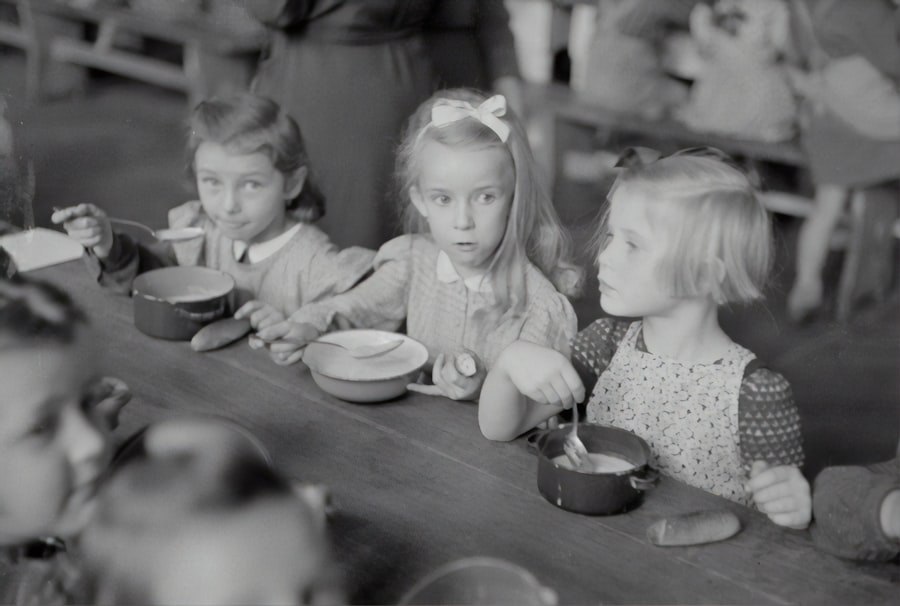Starter feed is a crucial component in the early stages of a chicken’s life. It is specifically formulated to meet the nutritional needs of young chicks, providing them with the necessary nutrients to support their growth and development. The primary purpose of starter feed is to offer a balanced diet that supports the rapid growth of chicks during their first few weeks of life.
This feed is typically high in protein to support muscle and feather development, as well as essential vitamins and minerals to promote overall health and immunity. Starter feed is designed to be easily digestible, as young chicks have delicate digestive systems that require special attention. Starter feed is essential for establishing a foundation for healthy growth and development in young chicks.
It provides the necessary nutrients for bone and muscle development, as well as supporting feather growth and overall body condition. The high protein content in starter feed is particularly important for supporting the rapid growth of chicks during their early weeks. Additionally, starter feed contains essential vitamins and minerals that are crucial for supporting the immune system and overall health of young chicks.
By providing chicks with a well-balanced starter feed, poultry keepers ensure that the birds have the best possible start in life, setting them up for success as they transition to grower feed and beyond.
Table of Contents
Key Takeaways
- Starter feed is designed to provide essential nutrients for young chicks to support their growth and development.
- Transitioning to grower feed is important as it provides the right balance of nutrients for chickens as they continue to grow and mature.
- Monitoring the growth and development of your chickens is crucial to ensure they are receiving the proper nutrition and to identify any potential health issues.
- Consider the breed and size of your chickens when selecting the appropriate feed to meet their specific nutritional needs.
- Consulting with a poultry nutrition expert can provide valuable insights and guidance on the best feed options for your flock.
- Factors to consider when deciding to switch from starter feed include the age and development stage of your chickens, as well as their overall health and nutritional requirements.
- In conclusion, making the best decision for your flock involves careful consideration of their nutritional needs, growth stage, and consulting with experts to ensure they receive the best feed for their health and development.
Transitioning to grower feed
Understanding Grower Feed
Grower feed is specifically formulated to meet the nutritional needs of growing chickens, providing them with the right balance of nutrients to support continued growth and development. The transition from starter feed to grower feed typically occurs around 8-10 weeks of age, depending on the breed and growth rate of your chickens.
Key Differences Between Starter and Grower Feed
Grower feed contains slightly lower levels of protein than starter feed, reflecting the decreased growth rate of older chickens. Additionally, grower feed contains higher levels of calcium to support bone development as chickens reach the point of lay.
Why Transitioning to Grower Feed Matters
By transitioning your chickens to grower feed at the right time, you’re ensuring that they continue to receive the appropriate nutrients to support their ongoing growth and development. This transition is critical in setting your chickens up for success as they continue to mature and eventually reach the point of lay.
Monitoring Growth and Development
It’s essential to monitor the growth and development of your chickens closely during this transition period, ensuring that they’re receiving the right balance of nutrients to support their changing needs.
Monitoring the growth and development of your chickens

Monitoring the growth and development of your chickens is essential for ensuring that they are receiving the right balance of nutrients at each stage of their life. By closely observing your chickens, you can assess their overall health and well-being, as well as their growth rate and body condition. This can help you determine if they are ready to transition from starter feed to grower feed, or if any adjustments need to be made to their diet.
Additionally, monitoring your chickens can help you identify any potential health issues or nutritional deficiencies early on, allowing you to take proactive measures to address them. Regularly weighing your chickens and observing their behavior and appearance can provide valuable insights into their overall health and nutritional needs. Regular monitoring of your chickens’ growth and development is crucial for ensuring that they are receiving the right nutrition at each stage of their life.
By closely observing your chickens, you can assess their growth rate, body condition, and overall health, allowing you to make informed decisions about their diet and nutritional needs. This can help you determine when it is time to transition them from starter feed to grower feed, as well as identify any potential health issues or nutritional deficiencies that may need to be addressed. By staying vigilant and proactive in monitoring your chickens, you can ensure that they receive the best possible care and support for their ongoing growth and development.
Considering the breed and size of your chickens
When deciding on the appropriate feed for your chickens, it is important to consider the breed and size of your flock. Different breeds of chickens have varying nutritional needs based on their growth rate, size, and egg-laying capacity. For example, larger breeds may require a different balance of nutrients compared to smaller breeds, while breeds that are known for high egg production may benefit from specialized feeds designed to support their reproductive health.
Additionally, considering the size of your chickens is important when determining their nutritional needs, as larger chickens may require more food to support their growth and development. By taking into account the specific characteristics of your flock, you can ensure that they receive the right balance of nutrients to support their overall health and well-being. The breed and size of your chickens play a significant role in determining their nutritional needs and the appropriate feed for their specific requirements.
Different breeds have varying growth rates and nutritional needs, which should be taken into consideration when selecting the right feed for your flock. Additionally, larger chickens may require different levels of nutrients compared to smaller chickens, reflecting their increased size and growth rate. By understanding the specific characteristics of your flock, you can make informed decisions about their diet and ensure that they receive the right balance of nutrients to support their ongoing growth and development.
Consulting with a poultry nutrition expert
When making decisions about your chickens’ diet and nutritional needs, it can be beneficial to consult with a poultry nutrition expert. These professionals have specialized knowledge and experience in formulating diets for poultry, taking into account factors such as breed, age, size, and intended use (e.g., egg production or meat production). A poultry nutrition expert can provide valuable insights into the specific nutritional needs of your flock, helping you select the right feed and make informed decisions about transitioning between different types of feed.
Additionally, they can offer guidance on managing any potential health issues or nutritional deficiencies that may arise, ensuring that your chickens receive the best possible care and support for their ongoing growth and development. Consulting with a poultry nutrition expert can provide valuable guidance and support for making informed decisions about your chickens’ diet and nutritional needs. These professionals have specialized knowledge and experience in formulating diets for poultry, taking into account a range of factors that can impact their nutritional requirements.
By seeking advice from a poultry nutrition expert, you can ensure that your flock receives the right balance of nutrients to support their overall health and well-being. Additionally, they can offer valuable insights into managing any potential health issues or nutritional deficiencies that may arise, helping you provide the best possible care for your chickens.
Factors to consider when deciding to switch from starter feed

Monitoring Your Chickens’ Growth and Health
When considering whether to switch from starter feed to grower feed, there are several factors to take into account. These include the age and growth rate of your chickens, as well as their overall health and body condition. It is important to monitor your chickens closely during this transition period, assessing their growth rate and body condition to determine if they are ready for a change in diet.
Considering the Specific Needs of Your Flock
Additionally, considering the specific nutritional needs of your flock based on factors such as breed and size can help inform your decision about when to make the switch from starter feed to grower feed. By taking these factors into consideration, you can ensure that your chickens receive the right balance of nutrients at each stage of their growth and development.
Key Factors to Consider
When deciding whether to switch from starter feed to grower feed, it is important to consider a range of factors that can impact your chickens’ nutritional needs. This includes assessing their age, growth rate, overall health, and body condition to determine if they are ready for a change in diet. Additionally, taking into account the specific characteristics of your flock, such as breed and size, can help inform your decision about when to make the transition from starter feed to grower feed.
making the best decision for your flock
In conclusion, providing your chickens with the right balance of nutrients at each stage of their growth and development is crucial for supporting their overall health and well-being. Starter feed plays a vital role in setting the foundation for healthy growth in young chicks, while grower feed provides the necessary nutrients to support continued development as they mature. Monitoring your chickens’ growth and development closely, considering their breed and size, and consulting with a poultry nutrition expert can all help inform your decisions about their diet and nutritional needs.
By taking these factors into consideration and making informed decisions about transitioning between different types of feed, you can ensure that your flock receives the best possible care and support for their ongoing growth and development. In conclusion, making informed decisions about your chickens’ diet and nutritional needs is essential for supporting their overall health and well-being. By carefully considering factors such as their age, growth rate, breed, size, and consulting with a poultry nutrition expert when necessary, you can ensure that your flock receives the right balance of nutrients at each stage of their growth and development.
Providing them with the appropriate feed at each stage – from starter feed to grower feed – sets them up for success as they mature and reach adulthood. By prioritizing their nutritional needs and making informed decisions about their diet, you can ensure that your flock receives the best possible care and support for their ongoing growth and development.
If you’re wondering how long you should keep your chickens on starter feed, you may also be interested in learning about the importance of providing a coop for your turkeys. Check out this article on do turkeys need a coop to ensure you’re providing the best environment for all of your poultry.
FAQs
What is starter feed for chickens?
Starter feed is a type of feed specifically formulated for young chicks. It contains higher levels of protein and essential nutrients to support their growth and development.
How long should I keep my chickens on starter feed?
Chickens should be kept on starter feed for the first 6-8 weeks of their life. After that, they can be transitioned to grower feed, which is formulated for their adolescent stage.
What happens if I keep my chickens on starter feed for too long?
Keeping chickens on starter feed for too long can lead to excessive weight gain and potential health issues. It is important to transition them to grower feed at the appropriate time to support their nutritional needs at different stages of development.
Can I mix starter feed with other types of feed?
It is not recommended to mix starter feed with other types of feed, as it may disrupt the balance of nutrients that young chicks require for healthy growth. It is best to transition them to the appropriate feed for their stage of development.
Meet Walter, the feathered-friend fanatic of Florida! Nestled in the sunshine state, Walter struts through life with his feathered companions, clucking his way to happiness. With a coop that’s fancier than a five-star hotel, he’s the Don Juan of the chicken world. When he’s not teaching his hens to do the cha-cha, you’ll find him in a heated debate with his prized rooster, Sir Clucks-a-Lot. Walter’s poultry passion is no yolk; he’s the sunny-side-up guy you never knew you needed in your flock of friends!







